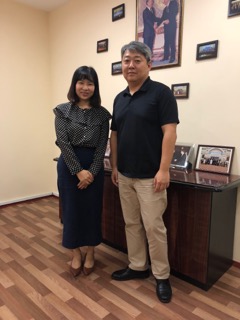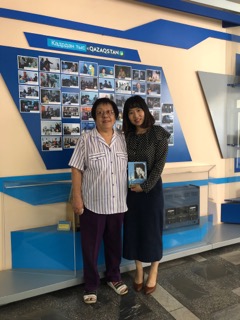都市周縁に生きる人々と政治的暴力の関係についての研究――ザンビアの鉱業都市の事例――
対象とする問題の概要 独立後のアフリカ諸国の特徴のひとつとして、都市への急激な人口流入が挙げられる。この人口流入は、独立後の都市偏重型開発政策によって広がった都市と農村の所得格差、雇用機会の安定性の相違によって、都市における労働力需要を超…

After the collapse of the Soviet Union, Kazakhstan, as a newly independent nation-state, has made great efforts for the national integration of its multiethnic populace. It is the most important issue for the nation, which could pursue two incompatible methods of national integration: multiethnicism or, Kazakh-ethnocentrism.
The purpose of this study is to investigate how Kazakhstan Koryo-saram (Koreans), who became Kazakhstani citizens once the nation gained independence, have responded to the two methods of the integration and how their society has changed. In my fieldwork, I conducted interviews with representatives of the main institutions of Kazakhstani Korean society, such as the Association of Koreans in Kazakhstan, the editorial office of the Koryo Ilbo (a Korean-language newspaper), the Korean television and Korean radio station, the Korean Cultural Center, and the Almaty branch of the Assembly of People of Kazakhstan.

My research yielded two findings. The first is that the current activities of the Koryo-saram provided insight into the direction of their activities in the past, present, and future. The second is about identity of the Kazakhstan Koryo-saram. By examining trends within the community, we can see that the Kazakhstani Koryo-saram are building their identity as a part of the Kazakhstani nation, while at the same times as one of the minority groups in a multiethnic Kazakhstan. The community can be compared to Koryo-saram societies in other former Soviet areas where Koreans moved to seek a better environment.
It would be necessary to examine the factors that make up the identity of the Kazakhstani Koryo-saram and to compare them to those of the Koryo-saram in other former Soviet areas.
Copyright © 附属次世代型アジア・アフリカ教育研究センター All Rights Reserved.